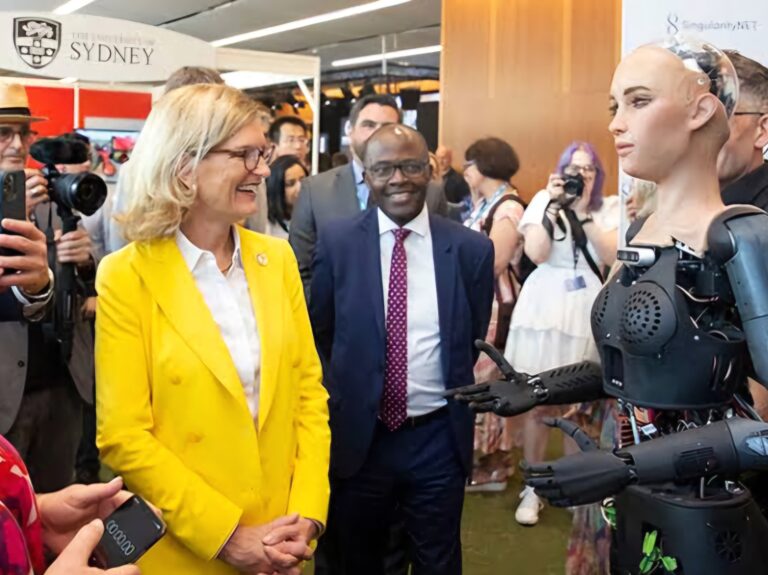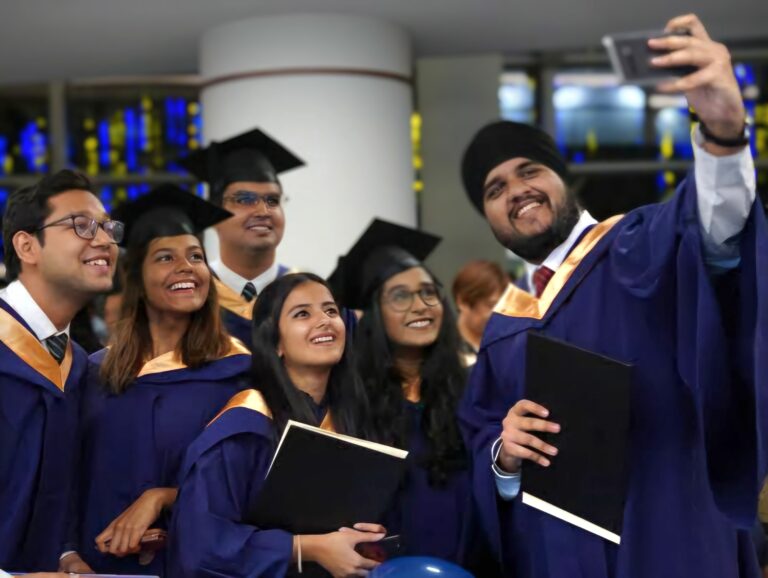Universities enrolling foreign students with poor English – BBC
Universities enrolling foreign students with poor English – BBC
Yasmin, a pseudonym, moved from Iran to pursue a master’s degree at a new university in the UK. She was surprised to find that many of her peers had limited English skills, with only a few being British.
“How can students continue coursework without fully understanding the British accent or English?” she shared in an interview with BBC File on 4.
Yasmin noted that many students resorted to outsourcing their coursework and even paid others to mark their attendance at lectures.
Her experience highlights a growing concern. The University and College Union (UCU) claims some universities are prioritizing high fees from international students over language proficiency. One professor reported that 70% of his recent master’s students lacked adequate English skills.
However, Universities UK, which represents 141 universities, disputes these claims, emphasizing that strict language requirements are in place for international students.
Universities UK, representing 141 institutions, denies these allegations, stating that strict language proficiency standards are enforced for international students.
Jo Grady, representing the University and College Union (UCU) with 120,000 members including lecturers and university staff, describes it as an open secret that some students lacking English skills find ways to study in the UK.
“We frequently hear from members about strategies used to bypass language requirements and secure spots on courses,” she explains.
Rose Stephenson from the Higher Education Policy Institute, an independent think tank, notes that about 70% of master’s students in England now come from overseas, a significantly higher proportion compared to other higher education programs.
In England, undergraduate tuition fees for domestic students are capped at £9,250, increasing to £9,535 in 2025-26, while fees for international students have no such restrictions. Tuition fee policies differ across the other UK nations.
“You can charge a foreign student as much as they are willing to pay,” says Rose Stephenson.
With no cap on postgraduate fees, a master’s degree at a top-tier university can cost as much as £50,000.
Stephenson explains that since undergraduate tuition fees for domestic students in England have not risen with inflation, universities face a real-terms funding cut. As a result, international students effectively subsidize the underpriced fees charged to home students.
A whistleblower who previously worked at an education provider for international students revealed that agents often targeted wealthy families abroad.
Speaking anonymously, they explained: “We knew universities were becoming increasingly desperate and would accept our plans with little scrutiny of how students were recruited.”
The whistleblower, who also spoke to the Sunday Times, added, “There’s no independent oversight of grades or exams. It’s like the Wild West.”
The whistleblower worked for Study Group, one of many providers supporting the UK university system while collecting fees from students. Study Group, a UK-registered organization, partners with over 50 universities and operates through a network of 3,500 agents in 99 countries.
Study Group strongly denies the whistleblower’s allegations, asserting that international students are admitted based on merit. The organization emphasizes that universities, not Study Group, make final admission decisions and rejects any suggestion that entry requirements are ever waived. It also maintains that its courses are rigorously reviewed by partner universities.
Yasmin, who paid £16,000 for a course in international finance at a university in southern England, revealed that out of around 100 students in most of her modules, “perhaps 80 or 90 purchased assignments” from overseas “essay mills.” In England, it is a criminal offense to produce work that students can falsely present as their own.
When Yasmin reported the situation to her tutor, no action was taken. She now feels that her master’s degree has been “devalued.”
A professor from a Russell Group university, who has taught at multiple institutions and prefers to remain anonymous, shares similar concerns. Over the past five years, he estimates that 70% of his master’s students lacked the English language skills required for their courses.
“There have been times when students couldn’t understand even basic questions during lessons,” he explains.
The professor has had to adjust his teaching methods, noting that some students rely on translation apps during class. However, he emphasizes that international students are not to blame, as most are doing their best, and he acknowledges that the situation can differ across subjects.
The professor explains that students often pass because courses are primarily assessed through assignments rather than exams. He notes that some students rely on essay mills or increasingly turn to artificial intelligence (AI) to complete their work—methods that, he says, can bypass current anti-plagiarism software.
Jo Grady from the UCU notes that it is unsurprising students with poor English skills sometimes turn to others or use AI for their work, describing it as an “act of desperation.”
She explains that UCU members frequently warn managers against admitting students without strong English skills, arguing that it creates challenges for both the students and the educators. Despite these warnings, she says, “university managers and leaders proceed anyway, prioritizing the income it generates.”
According to Grady, some universities face financial crises and have grown reliant on the substantial fees paid by international students, who are charged “eye-watering sums of money.”
“Institutions are focused on revenue, not necessarily on attracting the best candidates,” she adds. “This undermines the true purpose of higher education.”
Vivienne Stern, chief executive of Universities UK, dismisses claims that some international students are being admitted with inadequate English skills to increase revenue.
She emphasizes that universities conduct rigorous checks on applicants, including meeting the minimum language requirements set by the UK government.
“While students must be able to afford the fees to study in the UK, admissions are based on merit,” she explains. “Trust in the system is absolutely crucial.”
Stern highlights that international students are drawn to the high standards of UK universities but cautions against relying on their fees to subsidize domestic education and research. She warns that factors like geopolitics or currency fluctuations could impact the number of overseas students.
International student numbers are declining, with UK student visa applications dropping by 16% in the first half of the year. This reduction, partly due to new visa rules restricting most postgraduate students from bringing dependents, has led to income losses for some universities.
The decline is contributing to the most severe financial crisis for universities since tuition fees were introduced. The Office for Students (OfS), the government regulator, recently projected that by 2025-26, 72% of universities could be spending more than they earn and stressed the need for “rapid and decisive action.”
The Department for Education acknowledged the risks associated with reliance on international students and stated that many universities would need to adjust their business models. The department also reaffirmed its commitment to carefully managing migration.





